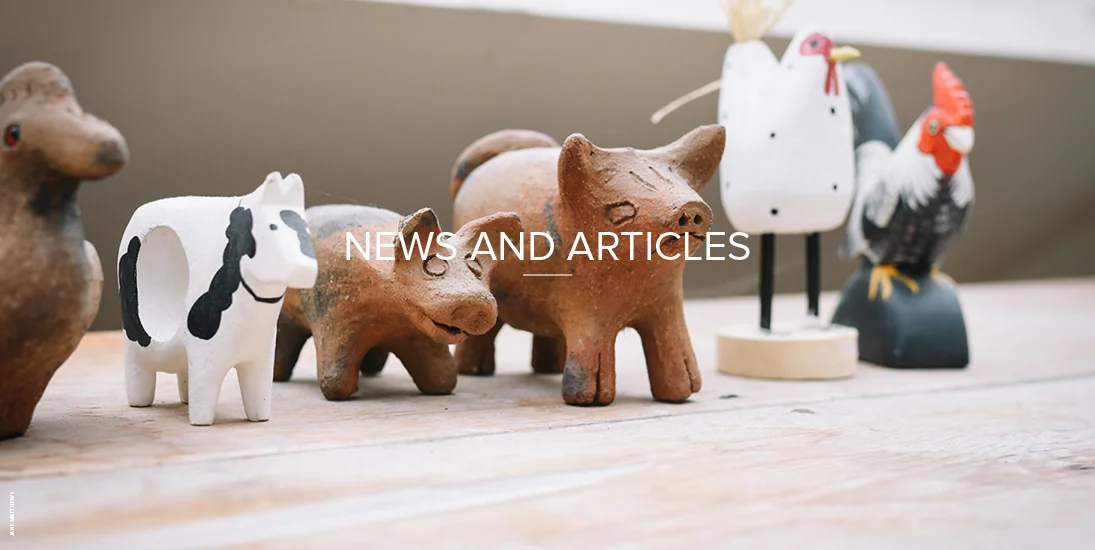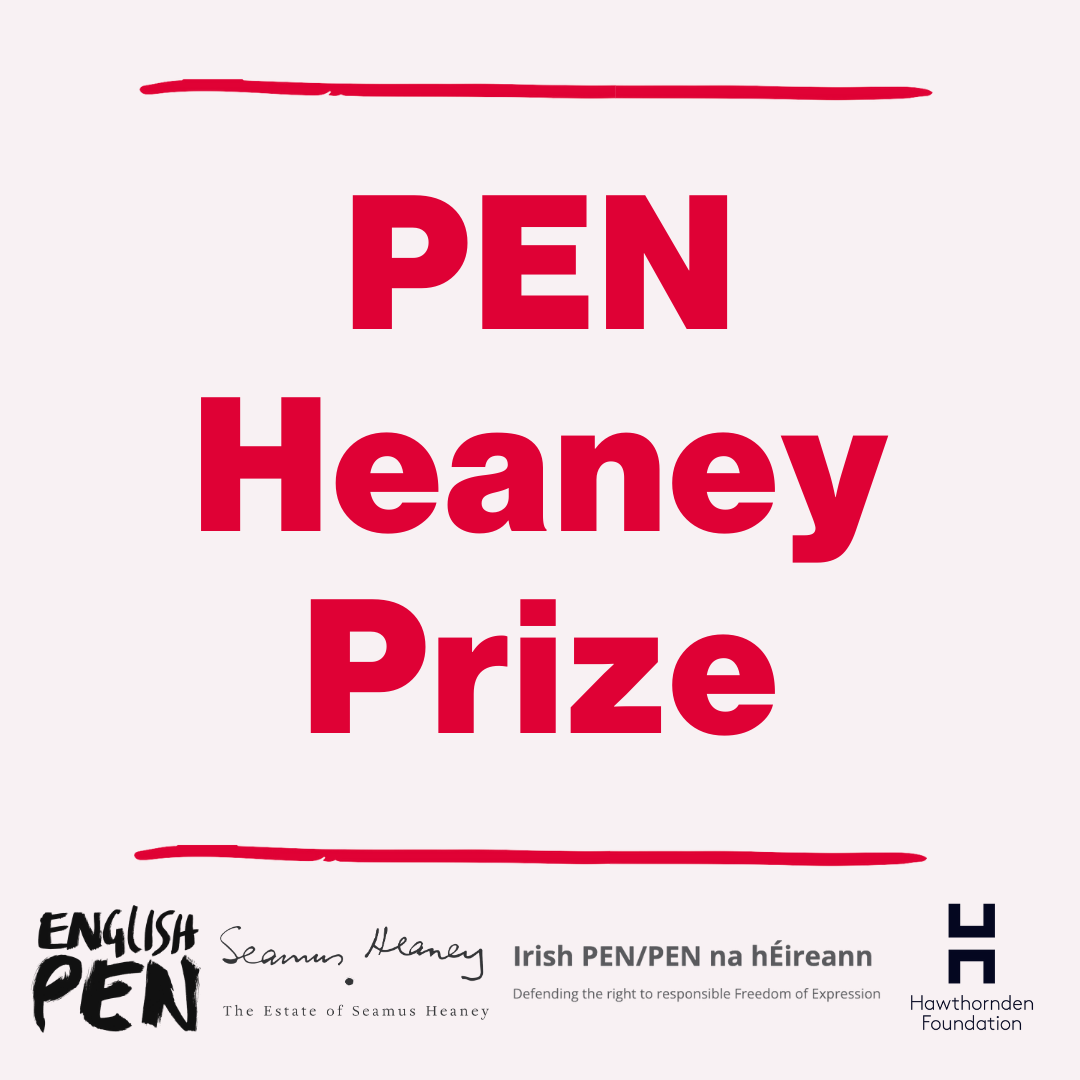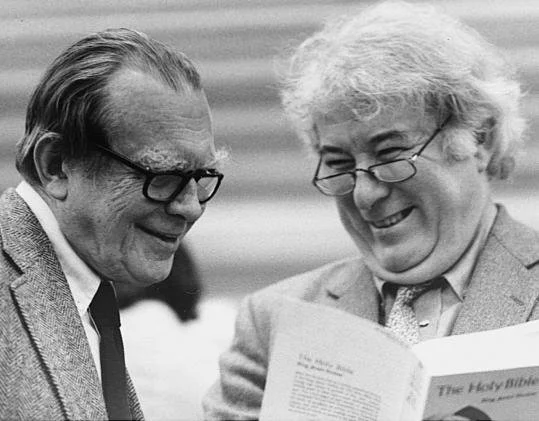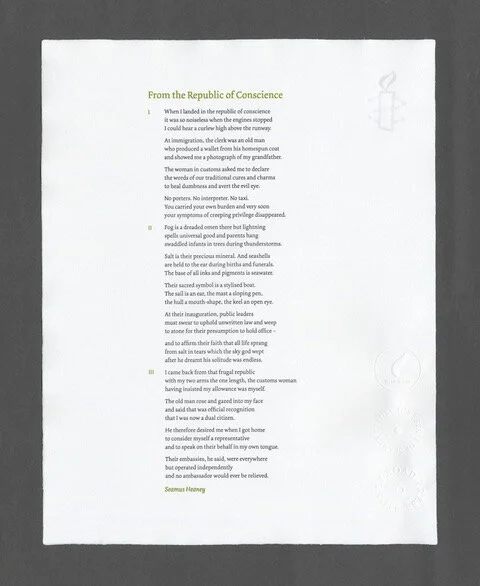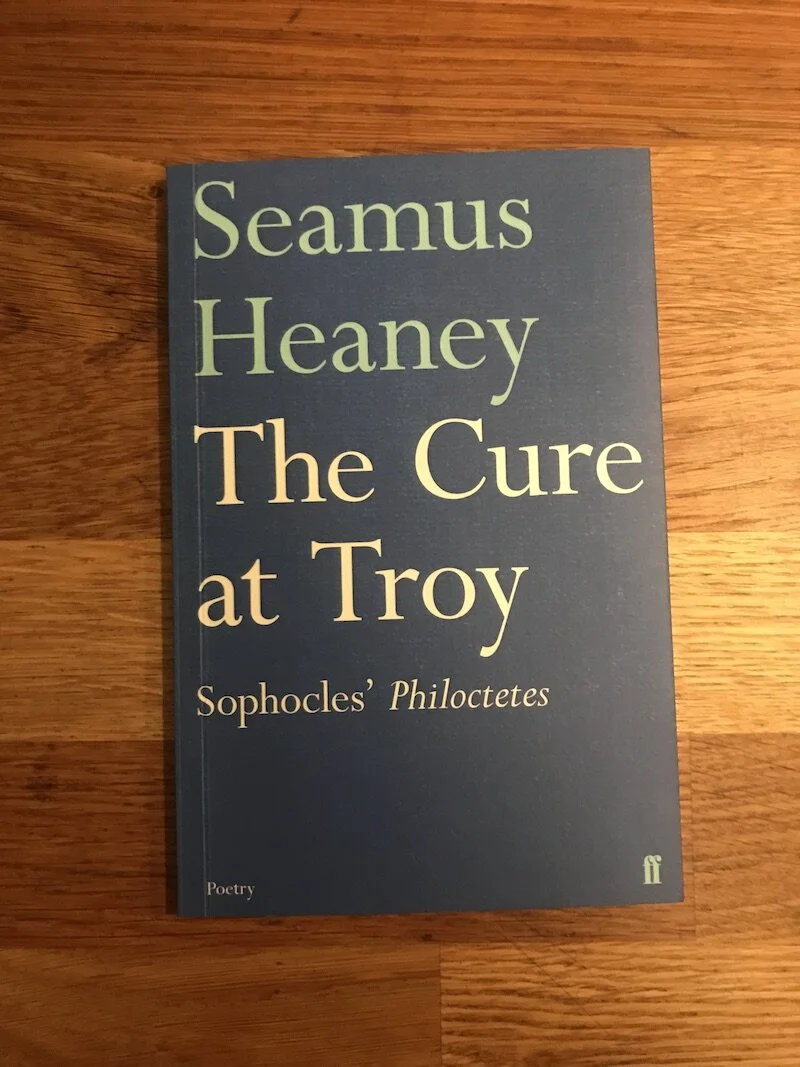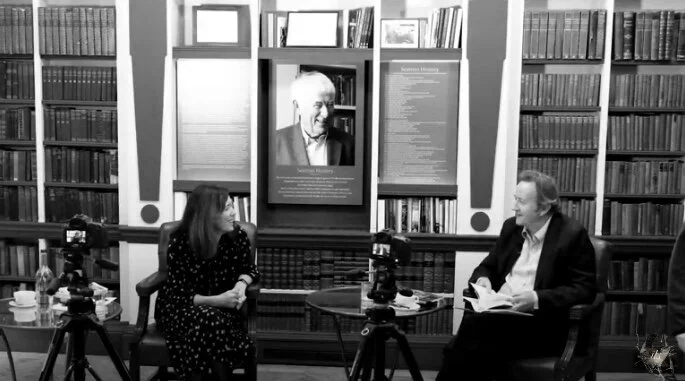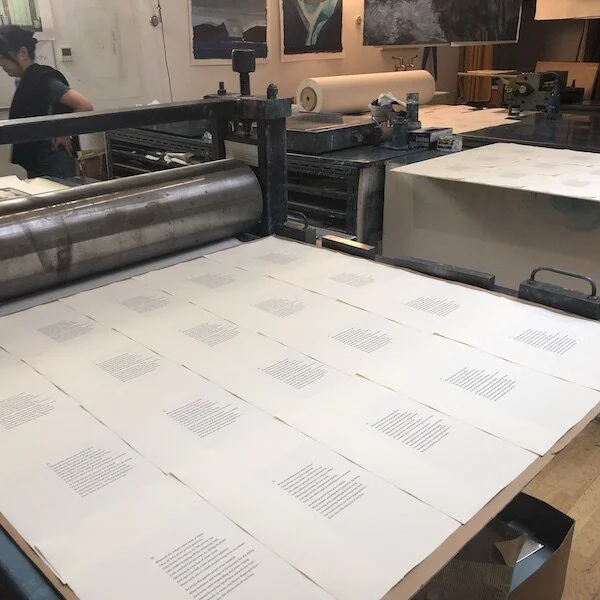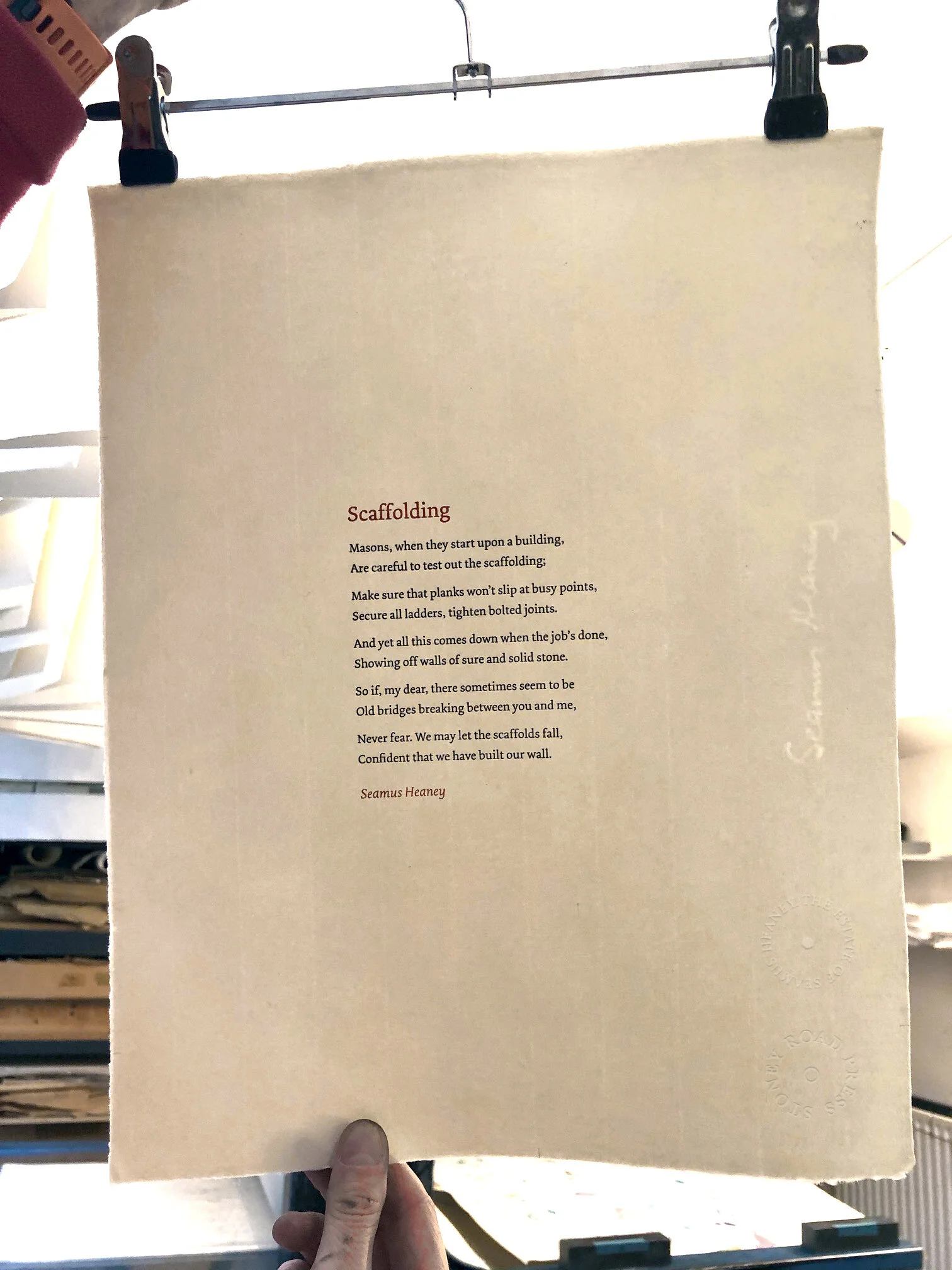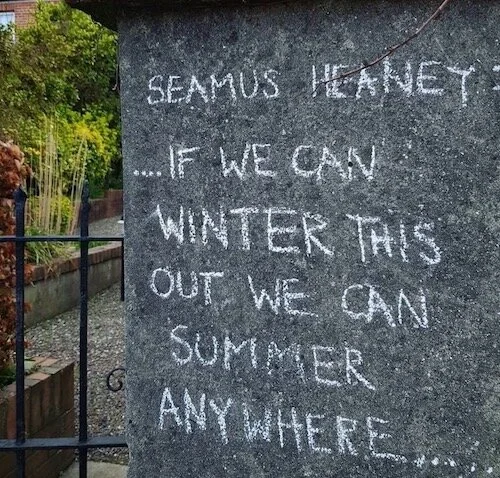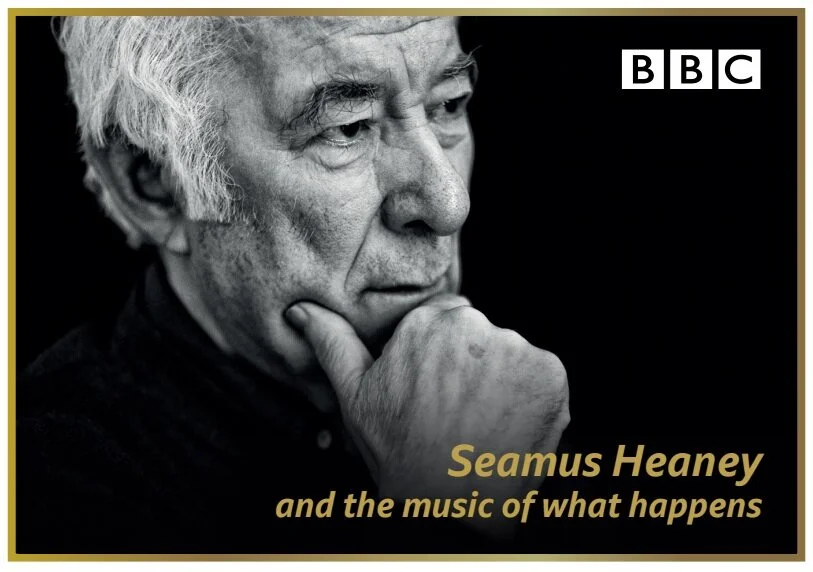As the Collected Poems CD box set produced by RTÉ in association with The Lannan Foundation is about to be re-published, Lorelei Harris - who was then the Editor of Arts, Features and Drama for RTE Radio 1 and the executive producer of the box set - looks back at how it came to be.
Some time in 2007 Adrian Moynes, the Director of RTÉ Radio, asked me if we could record a CD box set of Seamus Heaney reading his poetry collections. Dennis O’Driscoll, a good and faithful friend to both Seamus and The Lannan Foundation, had had the nod that the Foundation would fund the project if RTÉ would undertake its production.
It was a simple but daunting proposition.
Seamus was quite unwell at the time having suffered a stroke in 2006. I had never met him and the idea of approaching him on this seemed somehow indelicate. So I decided to wait and Dennis became my intermediary. Months passed and I would check in with Dennis from time to time to see how Seamus was doing, whether the moment had come to ask the question of him. At least, this is how I remember it. There was no urgency. I felt sure the project would happen eventually when Seamus was able for it. The blocks were all there. We just needed the builder.
Finally, we set about recording in 2008. It was a huge volume of work, eleven collections, and my main concern was to tax Seamus as little as possible, to keep the whole process private and small, to do it very slowly and precisely. To this end, we decamped to the wonderful Beacon Studios in Dublin city centre. There, for perhaps slightly more than a year, Seamus recorded poem by poem, collection by collection, working away for hours with producer, Tim Lehane and sound engineers, Mark Duff and Emer Sands.
The studio was closed, with virtually no visitors. The Lannans came and went. Adrian Moynes dropped down. There may have been a few others. I finally went down as they were nearing the end of the recording cycle. I was struck by the silence and concentration that permeated the control room as we listened, so utterly privileged to be there, to Seamus laying his great work before us. The voice, so familiar, coming from the recording studio, interrupted occasionally by Tim asking him to pick something up, to repeat a line, to go back and take it again. There is an immense discipline to this work. It requires precision, patience and trust, and has a mesmeric quality that carries you along. The text is god but when its magnificent creator is before you, the balance is somewhat altered. I remember Tim, or perhaps it was Mark, telling a story of correcting Seamus about a certain line they were recording and getting told in no uncertain terms that that was how he wanted it to be.
As I said, a daunting proposition.
I think I met Seamus for the first time that day in The Base. It was the end of the session and he must have been tired. I was still caught in the moment of the recording and quite overawed. We were nearing the end of the production process in tandem with the recording cycle. “What do you want to call the box set?” I asked him. He looked slightly bemused, paused for a moment and said “Collected Poems”. So it was, and is now.
I am told the box set is like hen’s teeth to lay hands on these days. Well, it is and it is not. Seamus was very clear about what he was doing in undertaking this mammoth task. He was creating an audio archive of his work and depositing it with RTÉ, the custodians of the Irish national sound archives. This he did in April 2009 on the occasion of his 70th birthday, amid great celebration and razzmatazz at The Royal Hospital Kilmainham. The still almost sacred moments of the recording studio were sent forth into the world. It is there to be heard, to be treasured and passed on. Its re-publication can only be a thing of joy. It was and remains a gift to us all.

